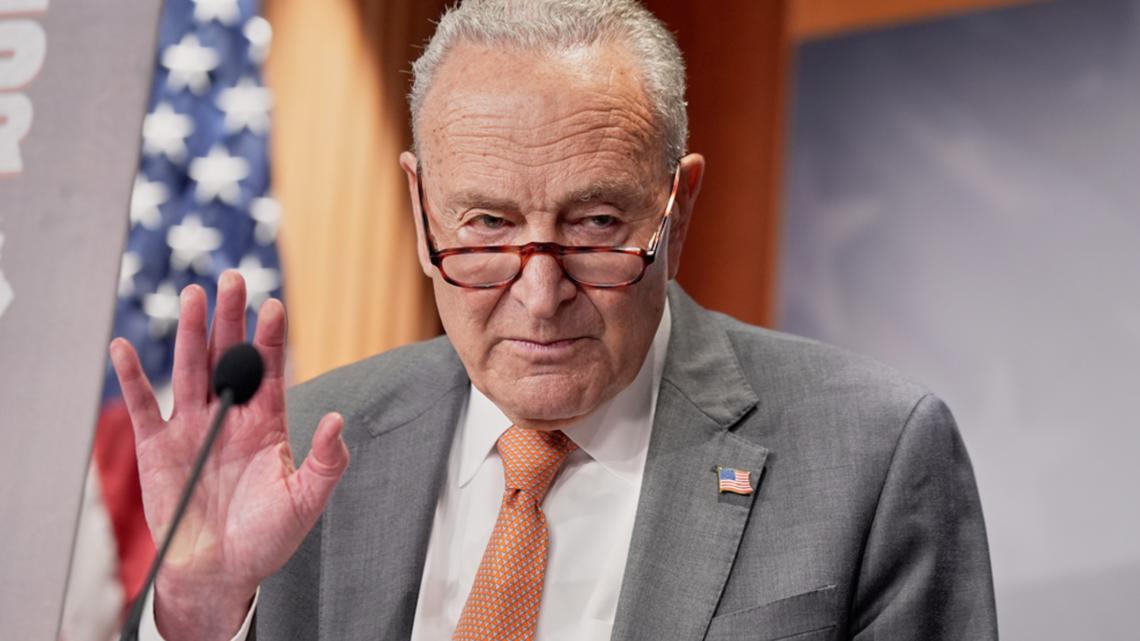Will Trump's Nominees Face Delays as Senate Exits DC Without a Deal?

Trump's Pressure on Senate Republicans: The Battle Over Nominations
As the political landscape continues to evolve in Washington, one significant development has emerged: former President Donald Trump has been actively pressuring Senate Republicans to cancel their August recess. His aim? To accelerate the confirmation of his nominations, which have faced delays due to Democratic opposition. This situation highlights the ongoing tension between party lines and the urgency that Trump feels regarding his agenda.
The Senate's decision to leave Washington for a monthlong recess on Saturday night underscores the complexities of the current political climate. With a backlog of nominations awaiting confirmation, the question arises: will Senate Republicans heed Trump's call to cancel their break, or will they prioritize their time off? This article explores the intricacies of this political maneuvering and its implications for the future of Trump's agenda and the Republican Party.
The Context of Trump's Pressure
Trump's insistence on pushing through nominations isn't simply a matter of political preference; it reflects broader concerns about governance and representation. Since leaving office, he has remained a central figure in the Republican Party, wielding considerable influence over its direction. The nominations he is eager to see confirmed cover a range of positions, including judges, agency heads, and other key roles that shape policy and administration at the federal level.
Senate Republicans are caught in a challenging position. On one hand, they recognize the importance of confirming Trump's nominees to maintain party loyalty and fulfill campaign promises. On the other hand, the political landscape has shifted, and many Republicans are wary of alienating moderate voters as they prepare for upcoming elections.
The Impact of Delays on Governance
Delays in the confirmation process can significantly hinder the functioning of government. Key positions remain unfilled, which can lead to inefficiencies and a lack of direction in various federal agencies. For example, vacancies in departments responsible for health, education, and national security can weaken the government's ability to respond effectively to pressing issues.
Moreover, these delays have broader implications for Trump's legacy. Each unfilled nomination is seen as a setback for his administration's efforts to implement its policies. As Democrats slow down the process, the urgency increases for Republicans to act decisively, highlighting the stakes involved.
Senate Republicans' Dilemma
For Senate Republicans, the pressure from Trump is palpable. The party faces a delicate balancing act between satisfying Trump’s demands and addressing the concerns of their constituents. Some Republicans fear that aligning too closely with Trump could jeopardize their standing with moderate voters, particularly in swing states where elections are closely contested.
Furthermore, a cancellation of the August recess could lead to backlash from constituents who expect their representatives to take time off and recharge. This reality complicates the decision-making process for Senate leadership, as they must weigh the potential political repercussions against the desire to fulfill Trump's agenda.
Potential Outcomes
As the Senate approaches its recess, several potential outcomes could unfold:
- Cancellation of Recess: If Senate Republicans choose to cancel their break, they would demonstrate loyalty to Trump and prioritize the confirmation of his nominees. This move could energize the party base but risk alienating moderate voters.
- Partial Recess: Another possibility is a compromise where only a portion of the recess is canceled, allowing for some nominations to be processed while still providing senators with a break.
- Maintaining Recess: Should Senate Republicans opt to stick with their scheduled recess, they may face criticism from Trump and his supporters, potentially leading to a rift within the party.
Ultimately, the outcome will hinge on the calculus of power within the Republican Party, as well as the pressing need for effective governance in Washington.
The Broader Political Implications
The internal dynamics of the Republican Party are more critical than ever as the 2024 elections approach. Trump's pressure on Senate Republicans serves as a reminder of his enduring influence within the party and the challenges that lie ahead for GOP leadership. The decisions made in the coming weeks will likely shape the narrative leading up to the elections, impacting candidates' strategies and messaging.
Furthermore, the way Senate Republicans navigate this situation could serve as a bellwether for their approach to governance in a post-Trump era. The balance of loyalty to Trump and responsiveness to constituents will be pivotal as they seek to maintain their majority.
Conclusion
The pressure on Senate Republicans to cancel their August recess is emblematic of the larger struggles within the GOP. As Trump continues to assert his influence, the party must grapple with its identity and future direction. The decisions made in the coming weeks will resonate far beyond the Senate floor, shaping the political landscape and the GOP's prospects in the years to come.
As we observe the unfolding events in Washington, one question remains: how will Senate Republicans balance the competing demands of party loyalty and constituent representation? The outcome could redefine the Republican Party as it heads into a crucial election cycle.
FAQs
Why is Trump pressuring Senate Republicans to cancel the August recess?
Trump is pushing for the cancellation to expedite the confirmation of his nominees, which have faced delays due to Democratic opposition, affecting governance and the implementation of his agenda.
What are the potential consequences of delaying nominations?
Delays can lead to unfilled positions in key government agencies, resulting in inefficiencies and a lack of direction, which may hinder the government's ability to respond to critical issues.
How might Senate Republicans respond to Trump's pressure?
Senate Republicans face a dilemma; they could choose to cancel the recess, maintain their schedule, or find a middle ground. Each decision carries potential political ramifications and impacts their relationship with constituents.
As we continue to observe these developments, what strategies do you think Senate Republicans should adopt to balance internal party dynamics and the needs of their constituents? #Trump #SenateRepublicans #PoliticalStrategy
Published: 2025-08-03 01:40:55 | Category: Trump GNEWS Search



